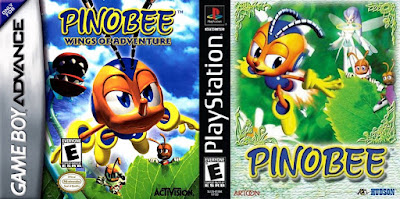Prior to the launch of the Nintendo Switch in early 2017 it was the general consensus that, by and large, video game consoles were separated by the divide of "home console" & "handheld console". This was mainly enforced by the simple fact that handhelds were consistently less powerful than their home counterparts & sometimes aimed to deliver different gameplay experiences, due to the general difference between playing on a stationary screen like a TV or monitor & playing while on the go. Aside from the rare exception of a console (or at least an accessory) that blurred the line between home & handheld, this was an undeniable truth that meant that you'd never see a portable game ported to a home console; maybe a remake once in a blue moon meant to take advantage of the change in console type, but not a direct port. However, things started changing once the new millennium started, as handhelds became more comparable in power to consoles (even if still a generation behind, or so), which in turn started resulting in handhelds being capable of experiences more & more like what could be found on home consoles.
Therefore, let's go over some handheld games that later saw home console release, though I will be enforcing some rules. First, nothing that got ported to the Switch (or at least had the Switch be one of its first porting homes), because its nature as a hybrid console kind of dilutes the entire point of this concept. Second, the home console must be notably different from the handheld in terms of hardware, so no Game Gear-to-Master System picks (like the various Brazil-only ports), as those are essentially the same hardware, minus the GG having a much larger color palette (& stereo sound... and a Start button); in other words, it's kind of cheating. Finally, no PSP-to-PS2 picks due to the simple fact that there are so many examples I could do an entire Obscusion B-Side about that subject.
Founded on August 27, 1999, Artoon was a studio created by Naoto Oshima, who had previously worked at Sega for over a decade prior, having helped co-create Sonic the Hedgehog with Yuji Naka & Hirokazu Yasuhara, and also directed classics like Nights into Dreams, Sonic CD, & Burning Rangers; his final game at Sega was working on the original Sonic Adventure for the Dreamcast, which came out in Japan in 1998. The first game developed by Artoon was Pinobee no Daibouken/Pinobee's Big Adventure (a.k.a "Quest of Heart") for the GBA, which worked off of the experience of Oshima & his staff of ex-Sega crew by being a mascot-style platformer, in this case playing as the titular robot bee that heads out to save his "Grandpa" creator. Published by Hudson, with Activision handling international release as Pinobee: Wings of Adventure, the game managed to be a "Day 1" launch title for the GBA in all three major regions (Japan, North America, & Europe), and though it received mixed reviews (it is a bit of a weird little game, admittedly), it still did well enough to receive a Japan-only sequel (Pinobee & Phoebee) for the GBA & it established Artoon as a sustainable studio that would go on to make the likes of Blink: The Time Sweeper (& its sequel), Yoshi Topsy-Turvy, & even assist Mistwalker in developing Blue Dragon, Away: Shuffle Dungeon, & The Last Story. Artoon would then be fully absorbed into AQ Interactive on April 28, 2011, alongside Cavia & feelplus, before AQ itself would be merged with Marvelous Entertainment & Livewire later that same year; Naoto Oshima would co-found Arzest in mid-2010, where he still works at today as president.



